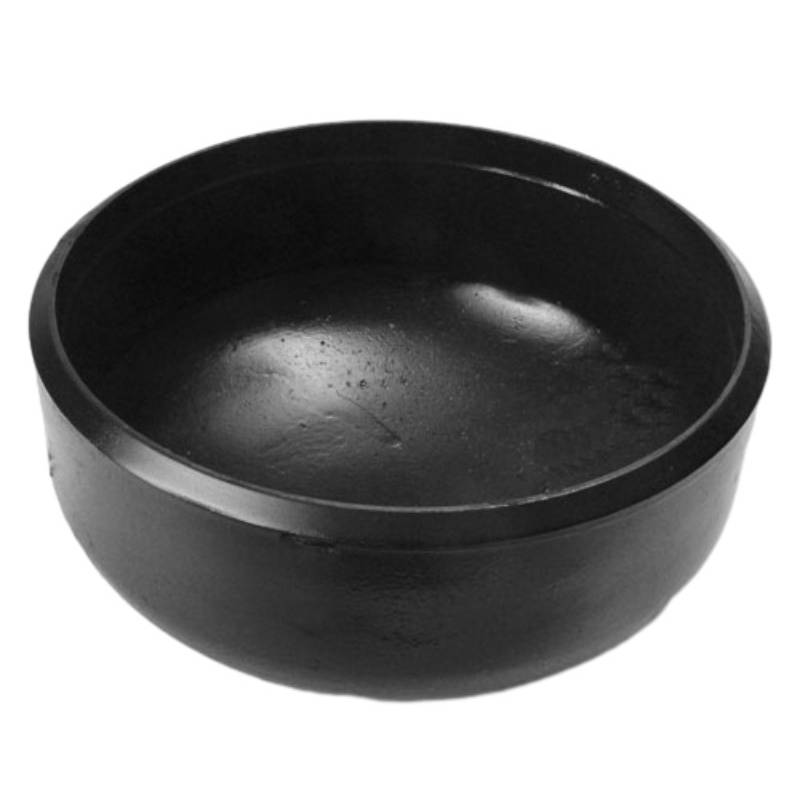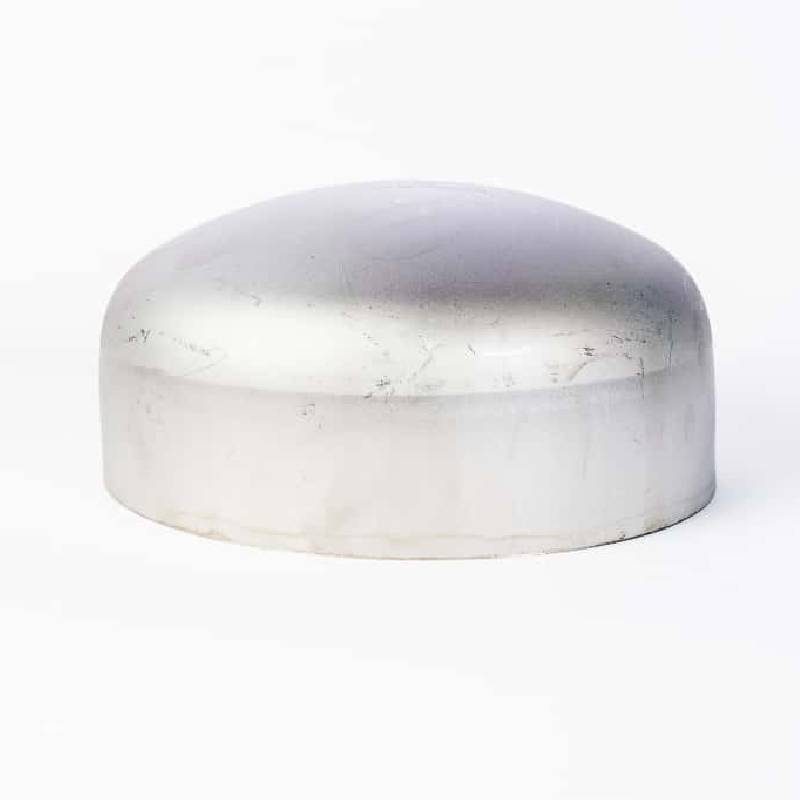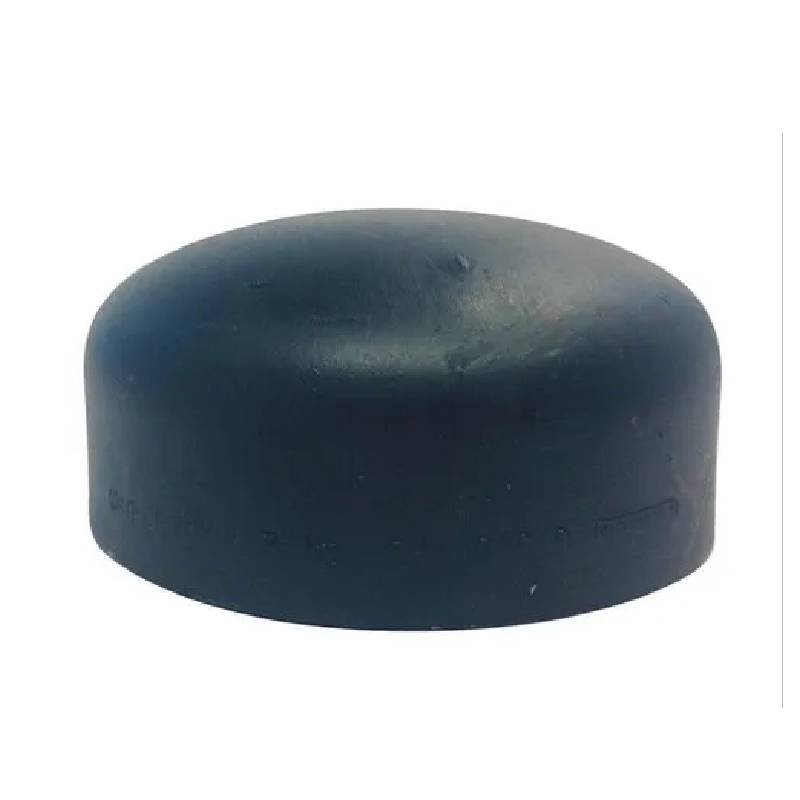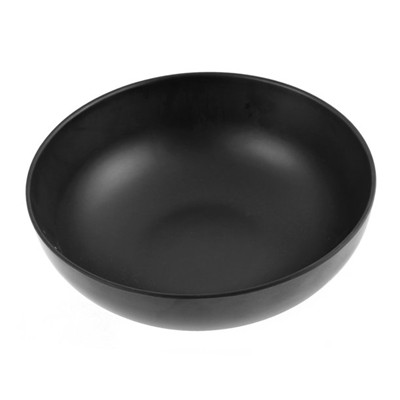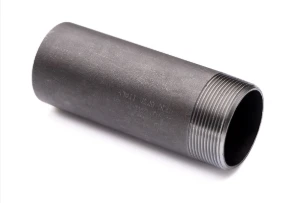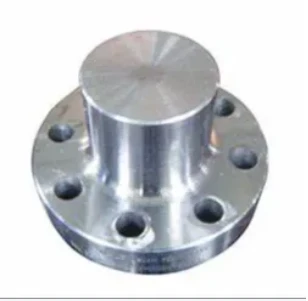-
Standaardnaleving:
ANSI/ASME B16.9 stomplaskappen voldoen aan de specificaties van het American National Standards Institute (ANSI) en de American Society of Mechanical Engineers (ASME). Deze standaardisatie zorgt voor uniformiteit, compatibiliteit en betrouwbaarheid in ontwerp en prestaties, waardoor een naadloze integratie in leidingsystemen wordt vergemakkelijkt.
-
Stomplasverbinding:
Stomplaskappen worden geïnstalleerd door ze rechtstreeks op het uiteinde van een buis te lassen, waardoor een permanente en robuuste verbinding ontstaat. Bij de stomplastechniek worden de uiteinden van de buis en de dop verwarmd tot het smeltpunt en vervolgens tegen elkaar gedrukt om een metallurgische verbinding te vormen. Deze lasmethode zorgt voor een sterke en lekvrije verbinding, waardoor er geen extra afdichtingsmaterialen nodig zijn.
-
Verzegelde sluiting:
De primaire functie van stomplaskappen is het verschaffen van een afgedichte afsluiting voor het uiteinde van pijpen in een leidingsysteem. Deze doppen hebben een koepelvormig of plat oppervlak dat de leidingopening afdekt, waardoor het binnendringen of uitstromen van vloeistoffen of gassen wordt voorkomen. De gelaste verbinding zorgt voor een goede afdichting, waardoor het risico op lekkage wordt geminimaliseerd en de integriteit van het systeem behouden blijft.
-
Materiaalselectie:
Stomplaskappen zijn verkrijgbaar in verschillende materialen, geschikt voor verschillende bedrijfsomstandigheden en media. Veel voorkomende materialen zijn onder meer koolstofstaal, roestvrij staal, gelegeerd staal en non-ferrolegeringen zoals messing of koper. De materiaalkeuze hangt af van factoren zoals temperatuur, druk, corrosieweerstand en compatibiliteit met de te transporteren vloeistof.
-
Veelzijdige toepassingen:
ANSI/ASME B16.9 stomplaskappen vinden toepassingen in diverse industrieën, waaronder olie en gas, petrochemie, chemische verwerking, waterbehandeling en energieopwekking. Ze worden gebruikt voor het afdichten van de uiteinden van pijpleidingen, schepen, tanks en apparatuur en bieden bescherming tegen verontreiniging, corrosie en gevaren voor het milieu.
-
Aanpassingsopties:
Hoewel stomplaskappen voldoen aan de standaardafmetingen en specificaties, zijn er aanpassingsopties beschikbaar om aan specifieke projectvereisten te voldoen. Dit kunnen variaties in dopgrootte, dikte, materiaalkwaliteit en oppervlakteafwerking omvatten. Op maat gemaakte doppen kunnen worden aangepast aan unieke leidingconfiguraties en aan speciale omstandigheden of gebruiksomgevingen.
Buttweld Fittings Manufacturing Process
The manufacturing of buttweld fittings primarily involves two methods: cold drawing and hot forming.
The general steps in the process are as follows:
1. Material Preparation
The initial stage involves sourcing and preparing the raw materials needed for production.
2. Cutting
Pipes or plates are cut into specified shapes or lengths as per requirements.
3. Forming
The materials are shaped into various configurations, such as buttweld pipe caps, 90-degree elbows, and reducing tees. Cold drawn products are formed directly into their designated shapes using hammers, mechanical presses, or upsetters. In contrast, the hot forming process begins with heating the material, followed by shaping it.
4. Heat Treatment
This process entails heating and cooling the metals to alter their microstructure, enhancing both physical and mechanical properties to achieve the desired characteristics.
5. Machining
Sharp cutting tools are employed in this stage to refine shapes and prepare the ends of the fittings.
6. Inspection and Testing
The products undergo a thorough inspection in accordance with relevant standards, checking dimensions, material quality, and appearance.
7. Coating (if required)
Finally, a coating may be applied as necessary to meet specific requirements.
Butt Weld Pipe Cap FAQs
-
What materials are the butt weld pipe caps made from?
- Our butt weld pipe caps are crafted from high-quality materials including carbon steel, stainless steel, and alloy steel. This selection ensures durability and resistance to corrosion, making them suitable for a wide range of applications in various industries such as oil and gas, water supply, and construction.
-
What sizes are available for the butt weld pipe caps?
- We offer a comprehensive range of sizes for our butt weld pipe caps, from small diameters to large fittings, accommodating various pipe sizes. Please refer to the product listing for specific dimensions or contact our customer support for assistance in selecting the appropriate size for your project needs.
-
Are these butt-weld pipe caps suitable for high-pressure applications?
- Yes, our butt weld pipe caps are designed to support high-pressure applications. They meet industry standards and specifications, providing a secure and leak-proof seal that can withstand significant pressure levels. Be sure to check the specifications to ensure compatibility with your particular system requirements.
-
How do I install the butt weld pipe caps?
- Installing butt weld pipe caps requires welding them directly to the pipe for a strong, permanent connection. We recommend using qualified welders and following proper welding procedures to ensure a secure fit and maintain the integrity of the piping system. For detailed installation guidelines, please consult the accompanying technical documentation.
-
Can these butt-weld pipe caps be used in outdoor applications?
Absolutely! Our butt weld pipe caps are suitable for both indoor and outdoor applications. They are built to withstand environmental factors, making them ideal for exterior installations. For prolonged exposure to harsh conditions, we recommend our stainless steel options for enhanced resistance to corrosion.
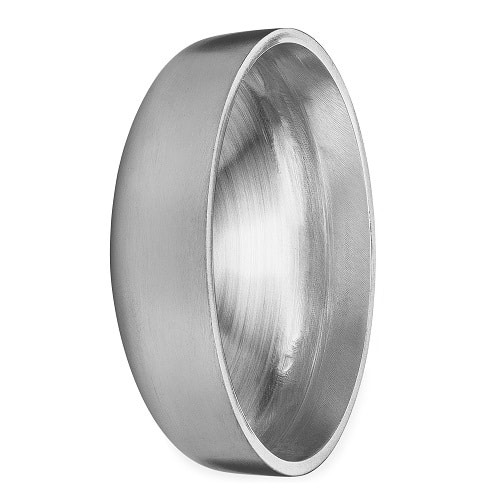
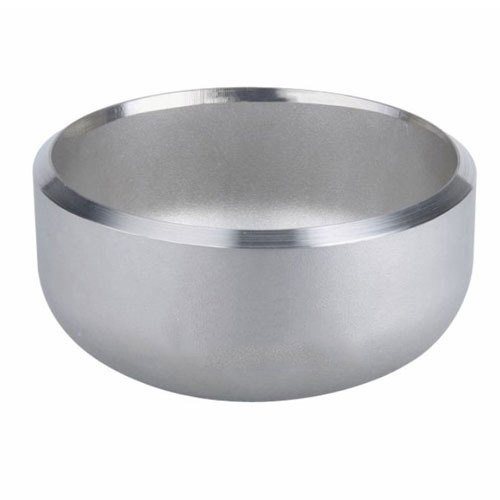
ANSI/ASME B16.9 stomplasdoppen zijn cruciale componenten in industriële leidingsystemen en zorgen voor een veilige en lekvrije afsluiting van buisuiteinden. Hun naleving van ANSI- en ASME-normen, stomplasverbinding, afdichtingsmogelijkheden en veelzijdigheid maken ze onmisbaar in verschillende toepassingen in verschillende industrieën. Met stomplaskappen kunnen ingenieurs en operators de integriteit, veiligheid en efficiëntie van hun leidingsystemen garanderen, wat bijdraagt aan een soepele en probleemloze werking.







